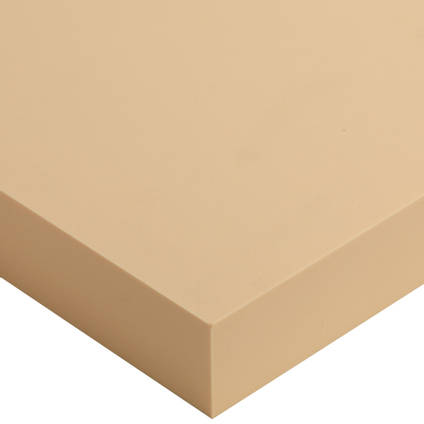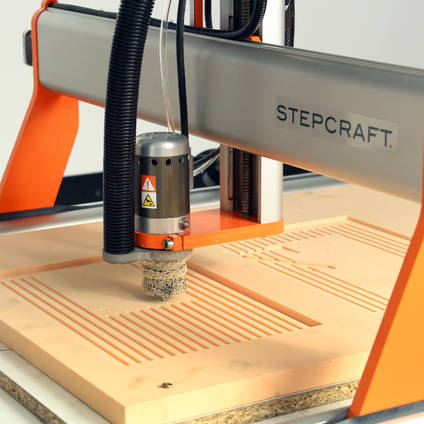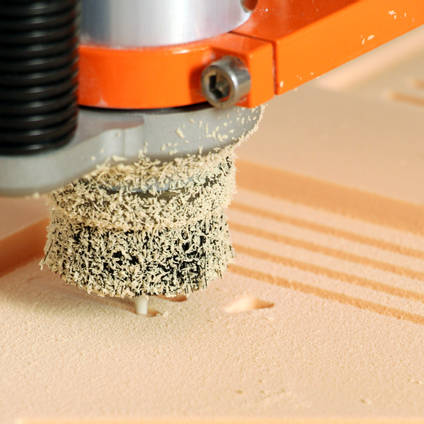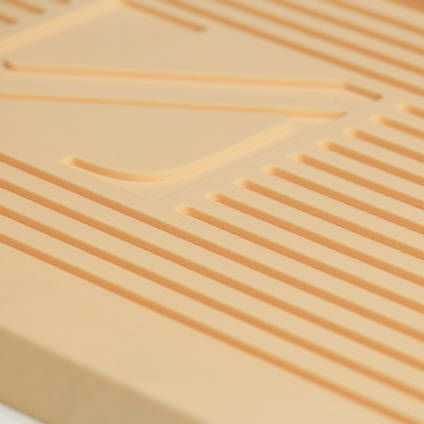Need any help or advice?+44 (0)1782 454499
Specification
Weight and Dimensions
| Thickness | 50 | mm |
|---|---|---|
| Length | 250 | mm |
| Width | 250 | mm |
Mechanical Properties
| Compressive Strength | 4 | MPa |
|---|---|---|
| Max Service Temp | 55 | °C |
| Density | 240 | kg/m³ |
Product Data
| Colour | Orange | |
|---|---|---|
| Chemistry / Material | Polyurethane |
Compatible With
| Compatible With | Epoxy | Yes |
|---|---|---|
| Compatible With | Polyester | Yes |
| Compatible With | Vinylester | Yes |
| Compatible With | Polyurethane | Yes |
| Compatible With | RTV Silicone | Yes |
General Properties
| Gross Weight | 0.75 | kg |
|---|
Shipping Information
Restrictions
This product is not classed as dangerous goods for transport and can be shipped to all destinations without restriction.
Shipping to EU countries is now done through our European subsidiary based in the Netherlands. All EU customers should use www.easycomposites.eu.
Package Size
There are no package size restrictions or surcharges for this product.
Delivery Cost
To find the delivery cost of this item to your address, add it to your basket and then use the instant shipping calculator on the basket page.
PU240 Medium Density Polyurethane Model Board
- PU240-006-50
- No reviews
PU240 is a medium density 240kg/m³ polyurethane (PU) tooling board/model board suitable for cutting and shaping by hand or by machine/CNC to create accurate models or patterns.
Available to buy online in 50mm (2") and 100mm (4") thicknesses in a range of block sizes from 250 x 250mm up to 1500 x 500mm.
PRODUCT VERSIONS
Sheet Size
Thickness
AVAILABILITY:More than 10 availablefor immediate shipping
We won’t be beaten on price!
If you believe you’re buying an equivalent product cheaper elsewhere, contact us to discuss your requirements.
Polyurethane modelling board in a medium density of 240kg/m³. This rigid material is perfect for making patterns, models, and even temporary moulds for short production runs. At this medium density it is easily shaped by hand using conventional tools and can be rapidly machined using manual or CNC machine tools. However, this 'medium density' block does not yield the same strength and surface finish as our higher density model board.
Typical Uses
- Creating master models/patterns/bucks for forming composite moulds.
- Forming a mould tool for prototyping short runs of composite parts.
- Building Landscapes/Features in architectural and scenario models.
Advantages
- Easy workability
- High dimensional stability
- High Temperature and chemical resistance
- Good compressive strength
- Paints/Seals easily
How to Buy
This board is available in 2 thicknesses; 50mm (2") and 100mm (4") and a range of sizes up to 500mm x 1500mm (19" x 59"), please select the thickness and block size you require from the drop-down menu at the top of the page.
Further Information
How to Use
Shape the material using similar methods to working with MDF or wood, can be easily carved/sawn/drilled/routed/sanded, alternatively, machined using standard manual or CNC equipment, once the desired form has been created, the pattern can then be prepared, if required, for mould release.
There are 2 main options available for achieving a good release from this PU modelling board depending upon the level of finish required. First the pattern needs to be sanded to at least 600grit, it is best to do this dry, as wet sanding will lead to water absorption. The board can be finished to a high gloss with Pattern-Coat, which can be applied by standard spray equipment, or if this is unavailable it can be brushed, sanded flat and polished. Pattern-Coat will accept all forms of mould release agent.
Polyurethane modelling board in a medium density of 240kg/m³. This rigid material is perfect for making patterns, models, and even temporary moulds for short production runs. At this medium density it is easily shaped by hand using conventional tools and can be rapidly machined using manual or CNC machine tools. However, this 'medium density' block does not yield the same strength and surface finish as our higher density model board.
Typical Uses
- Creating master models/patterns/bucks for forming composite moulds.
- Forming a mould tool for prototyping short runs of composite parts.
- Building Landscapes/Features in architectural and scenario models.
Advantages
- Easy workability
- High dimensional stability
- High Temperature and chemical resistance
- Good compressive strength
- Paints/Seals easily
How to Buy
This board is available in 2 thicknesses; 50mm (2") and 100mm (4") and a range of sizes up to 500mm x 1500mm (19" x 59"), please select the thickness and block size you require from the drop-down menu at the top of the page.
Further Information
How to Use
Shape the material using similar methods to working with MDF or wood, can be easily carved/sawn/drilled/routed/sanded, alternatively, machined using standard manual or CNC equipment, once the desired form has been created, the pattern can then be prepared, if required, for mould release.
There are 2 main options available for achieving a good release from this PU modelling board depending upon the level of finish required. First the pattern needs to be sanded to at least 600grit, it is best to do this dry, as wet sanding will lead to water absorption. The board can be finished to a high gloss with Pattern-Coat, which can be applied by standard spray equipment, or if this is unavailable it can be brushed, sanded flat and polished. Pattern-Coat will accept all forms of mould release agent.
Specification
Weight and Dimensions
| Thickness | 50 | mm |
|---|---|---|
| Length | 250 | mm |
| Width | 250 | mm |
Mechanical Properties
| Compressive Strength | 4 | MPa |
|---|---|---|
| Max Service Temp | 55 | °C |
| Density | 240 | kg/m³ |
Product Data
| Colour | Orange | |
|---|---|---|
| Chemistry / Material | Polyurethane |
Compatible With
| Compatible With | Epoxy | Yes |
|---|---|---|
| Compatible With | Polyester | Yes |
| Compatible With | Vinylester | Yes |
| Compatible With | Polyurethane | Yes |
| Compatible With | RTV Silicone | Yes |
General Properties
| Gross Weight | 0.75 | kg |
|---|
Unfortunately none of our tooling boards carry any Fire Retardancy or Fire Rating certification.
For the more dense modelboards PU240 and PU600, you can use P2 polyurethane resin as an adhesive to bond multiple pieces together. The resin can be spread over the surface of the block and will cure very quickly and make a good strong bond that will machine in a similar way to the board itself.
If you mean could epoxy resin be used to coat the model board (i.e. to surface it) then yes, this combination would be fine. The only combination to avoid with PU boards and epoxy resin is when you want to release cured epoxy resin off PU board after an elevated temperature cure; in this particular combination there is an issue of cure inhibition caused by hot PU inhibiting the cure of epoxy resin but really this only really means problems for epoxy prepregs off PU boards.
The Model board has a Heat Distortion Temperature of 55-60°C and so many vacuum forming processes would generate higher temperatures than the board can comfortable handle. If it's just for a small number of forming then you would probably find that the heat would not transfer excessively into the board and so it would be possible to vacuum form over it but for a production tool it would not be suitable.
ASK YOUR OWN QUESTION
Customer Product Reviews for PU240 Medium Density Polyurethane Model Board
SUBMIT YOUR OWN PRODUCT REVIEW
We publish all reviews for verified purchases. Submit your own review and help other customers with their choices.SUBMIT YOUR OWN PRODUCT REVIEW
We publish all reviews for verified purchases. Submit your own review and help other customers with their choices.Shipping Information
Restrictions
This product is not classed as dangerous goods for transport and can be shipped to all destinations without restriction.
Shipping to EU countries is now done through our European subsidiary based in the Netherlands. All EU customers should use www.easycomposites.eu.
Package Size
There are no package size restrictions or surcharges for this product.
Delivery Cost
To find the delivery cost of this item to your address, add it to your basket and then use the instant shipping calculator on the basket page.
100% SECURE
PAYMENT METHODS


Easy Composites Ltd, registered in England 7486797. All content copyright (C) Easy Composites Ltd, 2025. All rights reserved.



